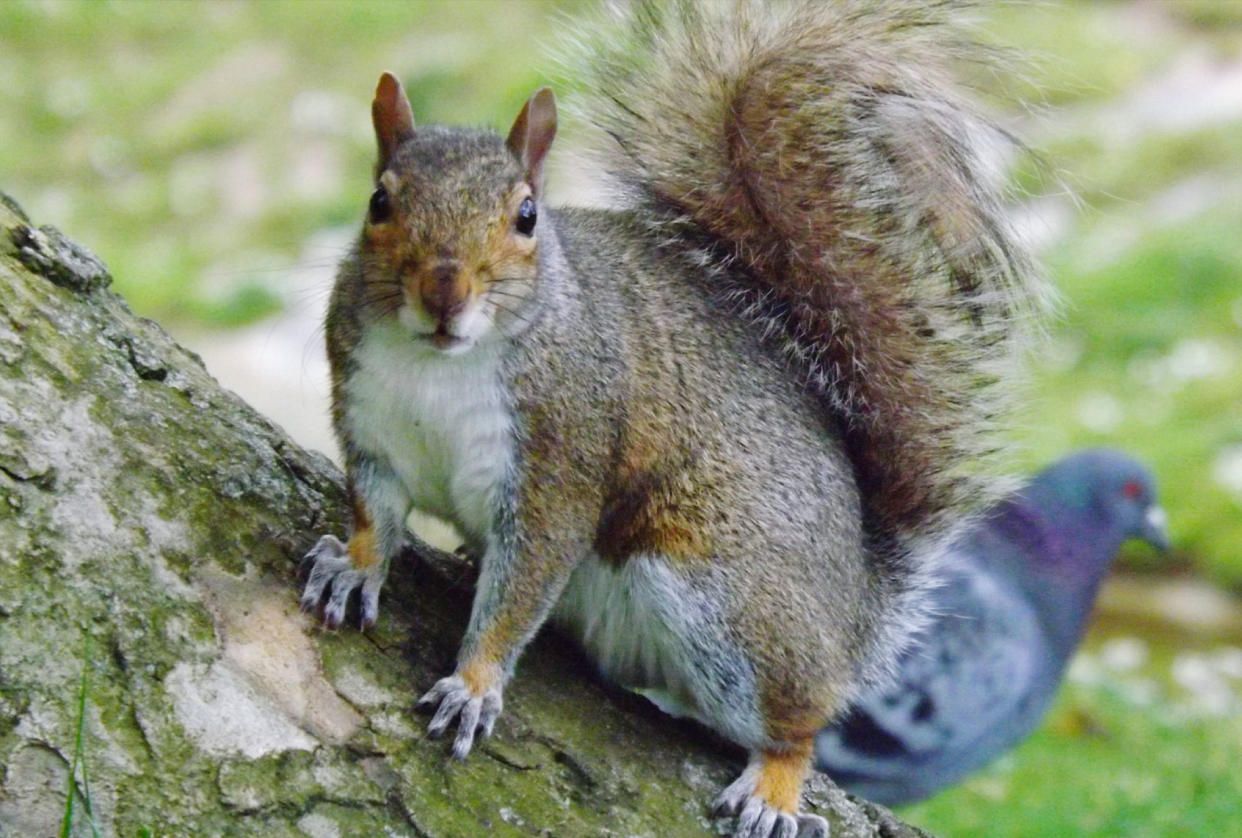How squirrels cope with stress: New study may offer climate lessons for humans

Squirrels are found nearly everywhere, and their apparently playful demeanor makes it easy not to notice that their lives can be difficult. That rambunctious behavior we observe both in city parks and in wilderness is because squirrels must spend most of their time either searching for food and — perhaps more importantly — striving not to become food themselves.
As if that weren't enough, a recent study from the journal Proceedings of the Royal Society B reveals that human activity, particularly climate change and habitat destruction, is making squirrels' lives significantly harder.
Scientists studied 1,144 wild North American red squirrels in the Canadian province of Yukon, creating a weighted early-life adversity index that analyzed six different negative events that squirrels might experience in youth and comparing that to their adult lifespans. They found that greater trauma in a squirrel's early life predicted shorter lifespans in both males and females. In one study, this negative effect was offset by naturally occurring food booms in a squirrel's second year of life, but subsequent experiments did not replicate that pattern. This suggests that the damaging consequences of early life trauma can sometimes be overcome or balanced out by subsequent success — in squirrel terms, and likely in human terms too — but that there's no surefire way to accomplish that.
"We know from studies on other animals, including humans, that difficult experiences during early development can have lasting consequences for individual health and survival," said Lauren Petrullo, lead author of the paper and a professor at the University of Arizona's Department of Ecology and Environmental Biology. Petrullo added that the new study "extends this understanding in two main ways." First, by demonstrating that different types of early-life experiences — such as food deprivation, increased temperatures or an abundance of predators — impact the squirrels in various ways, with some taking more of a toll on their lifespan than others. Secondly, even though squirrels' lives can be hindered by bad early-life conditions, these effects do not have to be permanent.
"If their future environment is really, really good," and if they experience the aforementioned "food boom," Petrullo said, "that essentially cancels out those negative effects of a harsh developmental environment." That finding "is particularly noteworthy," she added, "because we currently do not understand why some individuals seem to be very sensitive and vulnerable to early-life challenges" while others are much less so. "Our findings show that those kinds of differences can actually be explained in part by differences in the quality of an individual's future environment — which I think is an optimistic way to think about early-life struggles."
Want more health and science stories in your inbox? Subscribe to Salon's weekly newsletter Lab Notes.
Yet one adverse environmental condition faced by squirrels and all other species on our planet is unlikely to improve, at least not until humans figure out how to limit and reduce emissions of greenhouse gases: climate change.
Many of the "strongest forms of early-life adversity for young red squirrels" in the study population, said Petrullo, "were environmental factors like the availability of food and the abundance of predators," which are both "heavily influenced by climate change." As temperatures continue to warm, she suggested, "We might expect to see changes to how long squirrels can live."
Climate change isn't the only human activity making life tough for squirrels. Habitat destruction, often through the removal of woodlands for housing developments, is another important stress factor.
The trees that produce food for red squirrels are subject to greater insect infestation as temperatures rise, Petrullo said. "Human encroachment into areas that squirrels call home can also push them outside the landscapes with which they have evolved, and these things can influence ecosystems in a cascading way, exacerbating the amount of adversity a squirrel experiences during early development, which can reduce lifespan."
Squirrel species are plentiful and face no threat of extinction, unlike many other species harmed by human activity. That may provide its own set of lessons, Petrullo suggests. Because squirrels have to cope with so many simultaneous challenges, just like humans, they may offer important insights into human survival as we face the climate crisis and numerous other stress factors.
"We have the unique opportunity to try and figure out how other animals have evolved to cope with hard environments," said Petrullo. "Uncovering these strategies can help lead us to an understanding of how humans may be able to rise above early-life challenges, too."

